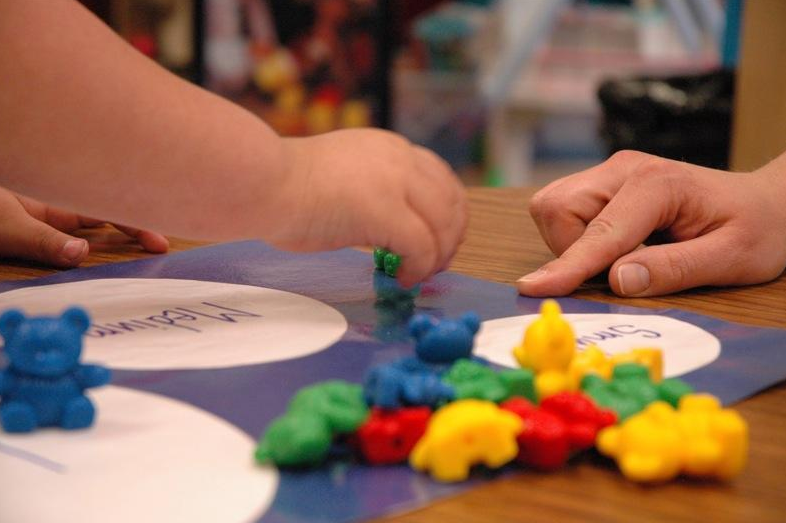

Preschool advocates have had a tough time convincing lawmakers that spending money in the earliest years of a child’s education has a long-term payoff.
Just ask Illinois First Lady Diana Rauner.
At this year’s Education Writers Association conference in Chicago, Rauner said her husband, Republican Gov. Bruce Rauner, understands the value of early childhood education.
“He’s been educated for years,” Rauner said. “He’s absolutely on board.”
But that hasn’t stopped programs from being on the chopping block. In late February, the early childhood education advocacy group the Ounce of Prevention Fund where Rauner serves as president criticized her husband’s plans to cut state funding to child care and early intervention programs.
Rauner was part of a panel session at EWA called “The Economics of Early Education” with University of Chicago professor and Nobel Laureate James Heckman, who has researched the value of investing in preschool, and U.S. Department of Education Senior Adviser John King, a former New York State Education Commissioner. It was moderated by Liz Willen, editor in chief of The Hechinger Report.
The panelists said one of preschool’s biggest expansion hurdles is the lack of buy-in from state elected officials. Nearly 60 percent of four-year-olds in 2013 were not enrolled in a publicly funded programs like state-funded preschool, Head Start and special education programs, according to the National Institute for Early Education Research.
“What’s interesting is even though the case is obvious and there’s a lot of evidence supporting it, but this knowledge does not seem to be known by governments,” Heckman said. “When children do not receive these early environments that are standard for middle class families, there are steep prices to pay by society at large.”
Another challenge is that there’s a relatively small body of long-term research proving the positive effects of preschool, Heckman said, and politicians get distracted by critics that say early childhood education’s benefits experience a fadeout in student achievement by the third grade.
Heckman said politicians should be thinking more long-term. Two of the most well-known randomized control studies in the U.S. about preschool — the Perry Preschool Project and Abecedarian — both show long-term gains.
The U.S. Department of Education says that children who partake in preschool have “better health, social-emotional, and cognitive outcomes than those who do not participate” and that children from low-income families tend to benefit the most.
“If you look at measures of social and emotional skills, the ability to work with others, those don’t fade out,” Heckman said. “If you look at earnings, educational attainment, that’s not fadeout.”
Even so, advocates have turned to arguments touting the economic impact to make their case. According to the federal education department, investing in high-quality preschool and early learning programs have a return on investment of $8.60 for every $1 spent. Some believe that’s a conservative estimate.
“The first dollars spent in the earliest years have the highest rate of return,” Heckman said. “Skill begets skill.”
King said major businesses have started to advocate for increased access to preschool because they see it as beneficial to the short-term productivity and reliability of their employees. In Indianapolis, major corporations rallied around the city’s investment in a preschool pilot program when the political fate of the proposal was unclear.
“They have an immediate benefit when their employees have access to consistent … care,” King said. “Productivity is increased.”
The next hurdle for preschools will be professionalizing the workforce. Many preschool workers are being paid minimum wage or don’t have advanced education or certifications. Preschool teachers earned a median salary of $27,570 in 2013, according to US News and World Report.
“We haven’t figured out what to do about talent development in this country,” Rauner said. “It’s a huge public problem. Credentials are clearly important.”